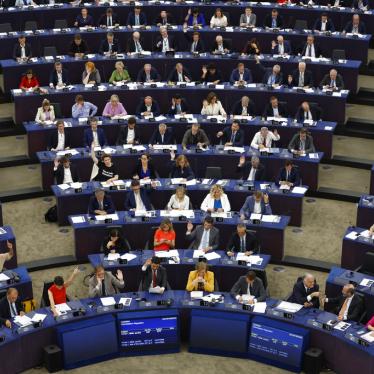Several EU member states are gathering in Madrid this week for the Amsterdam Declarations Partnership (ADP) summit, an alliance of European countries committed to eliminating deforestation in agricultural supply chains by 2025.
Their leadership is sorely needed.
As multiple elections loom across Europe, some politicians have tried to score political points by attacking environmental regulations that are desperately needed to stave off the climate crisis. One of their targets has been the European Union’s Deforestation-Free Products Regulation (EUDR).
The law is intended to address Europe’s oversized role in driving deforestation around the world. Adopted last summer, the European Commission and member states have begun preparing for its implementation. Businesses will have to start complying in January 2025.
The EUDR requires EU companies to ensure the wood, palm oil, soy, coffee, cocoa, rubber, and cattle they import or export isn’t produced on land deforested after December 31, 2020. European companies must also ensure these commodities are produced in conditions that comply with laws on land use rights, labor rights, and other human rights.
The EUDR is urgently needed. In 2023, the world lost the equivalent of almost 10 soccer fields of climate-critical forest per minute. The cause is clear: commercial-scale agriculture is by far the single largest driver of deforestation worldwide and the global trade in the seven commodities targeted by the EUDR is among the main culprits.
While the bulk of deforestation happens in the tropics, EU companies purchase millions of tons of products grown in tropical regions without addressing their local toll. Our research shows agribusiness operations have repeatedly run roughshod over the rights of workers and rural communities.
Multiple pledges have been made over the years to address these problems. Yet, repeated failure to meet those goals has yielded a clear lesson: voluntary pledges are unenforceable and ineffectual. Agribusiness cannot be expected to do better unless it is made to, through regulation.
EU member states that are ADP signatories should publicly commit to be the gold standard for EUDR implementation, urging their other European partners to do the same. Nature and local communities impacted by deforestation cannot afford any delays or setbacks.










